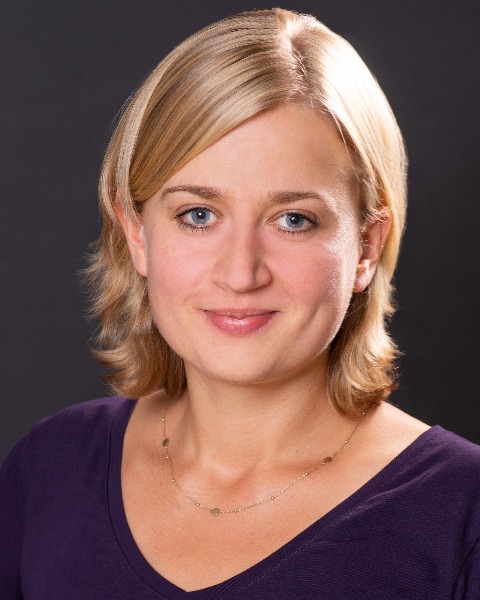Nursing & Allied Health
POSTER SESSION #2
P227 - PSYCHOLOGICAL NEEDS AND INTERVENTION PRIORITIES AMONG FEMALE AND MALE SCAD SURVIVORS: INSIGHTS FROM THE MINDSET STUDY
Friday, October 24, 2025
5:30pm - 6:30pm ET
Location: Board 61

Lisa-Marie Maukel, PHD
Post-doctoral Fellow
University of Ottawa Heart Institute, Ontario, Canada
Presenting Author(s)
Background: Spontaneous Coronary Artery Dissection (SCAD) is an increasingly recognized cause of acute coronary syndrome, predominantly affecting females and often accompanied by elevated psychological distress. Existing cardiac rehabilitation programs are not tailored to the specific needs of SCAD survivors, contributing to low participation and high dropout rates. Females, in particular, report gender-specific barriers to participation. While qualitative studies have identified unmet psychosocial needs, quantitative data on preferred intervention content and delivery methods remains limited. This study aimed to assess sex differences in the psychological intervention preferences of SCAD survivors, evaluating both intervention content and format priorities.
METHODS AND RESULTS: Patients diagnosed with SCAD within the past 3 years were recruited from 6 Canadian hospitals. Participants (N=326, 92.9% female; mean age 53.3±11.1 years) completed questionnaires assessing socio-demographics and clinical characteristics and rated their interest in intervention content and delivery method using a 5-point Likert scale (1 = not at all interested; 5 = extremely interested). Sex differences were analyzed using t-tests and presented as mean±SD.
Overall, the most highly rated intervention topics were stress management (3.7±1.2; 64.5% rated very/extremely interested), relaxation techniques (3.5±1.2; 55.4%), cognitive behavioral strategies (3.5±1.3; 56.8%), and processing the trauma of the cardiac event (3.4±1.4; 53.5%). Lower-rated topics included patient partnering (21.4%) and instrumental support (23.4%). Preferred delivery formats included in-person (3.1±1.3; 43.9%), individual sessions (3.2±1.3; 46.2%), health care professional-led interventions 3.4±1.3; 56.2%), and SCAD-specific programming (3.9±1.1; 70.8%) offered 1–3 months post-event (3.5±1.4; 61.8%).
Females expressed significantly greater interest than males in topics such as positive psychology, health advocacy, tolerating uncertainty, depression treatment, information support sessions from a mental health professional, and communicating with children about their cardiac event. Preferences for delivery modality were similar across sexes, although 55.1% of females showed high interest in women-specific interventions (3.4±1.3).
Conclusion: Patients with SCAD prefer early, individualized, SCAD-specific interventions focused on cognitive and emotional processing, delivered by health care professionals. Given the observed sex differences in intervention preferences, sex- and gender-sensitive approaches may be appropriate. Developing and testing a tailored psychological intervention in collaboration with SCAD survivors represents an important next step.
METHODS AND RESULTS: Patients diagnosed with SCAD within the past 3 years were recruited from 6 Canadian hospitals. Participants (N=326, 92.9% female; mean age 53.3±11.1 years) completed questionnaires assessing socio-demographics and clinical characteristics and rated their interest in intervention content and delivery method using a 5-point Likert scale (1 = not at all interested; 5 = extremely interested). Sex differences were analyzed using t-tests and presented as mean±SD.
Overall, the most highly rated intervention topics were stress management (3.7±1.2; 64.5% rated very/extremely interested), relaxation techniques (3.5±1.2; 55.4%), cognitive behavioral strategies (3.5±1.3; 56.8%), and processing the trauma of the cardiac event (3.4±1.4; 53.5%). Lower-rated topics included patient partnering (21.4%) and instrumental support (23.4%). Preferred delivery formats included in-person (3.1±1.3; 43.9%), individual sessions (3.2±1.3; 46.2%), health care professional-led interventions 3.4±1.3; 56.2%), and SCAD-specific programming (3.9±1.1; 70.8%) offered 1–3 months post-event (3.5±1.4; 61.8%).
Females expressed significantly greater interest than males in topics such as positive psychology, health advocacy, tolerating uncertainty, depression treatment, information support sessions from a mental health professional, and communicating with children about their cardiac event. Preferences for delivery modality were similar across sexes, although 55.1% of females showed high interest in women-specific interventions (3.4±1.3).
Conclusion: Patients with SCAD prefer early, individualized, SCAD-specific interventions focused on cognitive and emotional processing, delivered by health care professionals. Given the observed sex differences in intervention preferences, sex- and gender-sensitive approaches may be appropriate. Developing and testing a tailored psychological intervention in collaboration with SCAD survivors represents an important next step.
